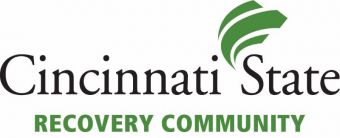- Education Topics
- Achievement Gap
- Alternative Education
- American Education Awards
- Assessment & Evaluation
- Education during COVID-19
- Education Economics
- Education Environment
- Education in the United States during COVID-19
- Education Issues
- Education Policy
- Education Psychology
- Education Scandals and Controversies
- Education Reform
- Education Theory
- Education Worldwide
- Educational Leadership
- Educational Philosophy
- Educational Research
- Educational Technology
- Federal Education Legislation
- Higher Education Worldwide
- Homeless Education
- Homeschooling in the United States
- Migrant Education
- Neglected/Deliquent Students
- Pedagogy
- Sociology of Education
- Special Needs
- National Directories
- After School Programs
- Alternative Schools
- The Arts
- At-Risk Students
- Camps
- Camp Services
- Colleges & Universities
- Counties
- Driving Schools
- Educational Businesses
- Financial Aid
- Higher Education
- International Programs
- Jewish Community Centers
- K-12 Schools
- Language Studies
- Libraries
- Organizations
- Preschools
- Professional Development
- Prom Services
- School Assemblies
- School Districts
- School Field Trips
- School Health
- School Supplies
- School Travel
- School Vendors
- Schools Worldwide
- Special Education
- Special Needs
- Study Abroad
- Teaching Abroad
- Volunteer Programs
- Youth Sports
- For Schools
- Academic Standards
- Assembly Programs
- Blue Ribbon Schools Program
- Educational Accreditation
- Educational Television Channels
- Education in the United States
- History of Education in the United States
- Reading Education in the U.S.
- School Grades
- School Meal Programs
- School Types
- School Uniforms
- Special Education in the United States
- Systems of Formal Education
- U.S. Education Legislation
- For Teachers
- Academic Dishonesty
- Childcare State Licensing Requirements
- Classroom Management
- Education Subjects
- Educational Practices
- Interdisciplinary Teaching
- Job and Interview Tips
- Lesson Plans | Grades
- Professional Development
- State Curriculum Standards
- Substitute Teaching
- Teacher Salary
- Teacher Training Programs
- Teaching Methods
- Training and Certification
- For Students
- Academic Competitions
- Admissions Testing
- At-Risk Students
- Career Planning
- College Admissions
- Drivers License
- Educational Programs
- Educational Television
- High School Dropouts
- Higher Education
- School Health
- Senior Proms
- Sex Education
- Standardized Testing
- Student Financial Aid
- Student Television Stations
- Summer Learning Loss
Home | National Directories | Collegiate Recovery Programs | Cincinnati State Technical and Community College |
Cincinnati State Technical and Community College

Basic Information
Program Name: CState Recovery Community (CSRC)
Phone Number: 5135691439
Program Contact: Holly Stoddard
Action Shots
* There are currently no photos associated with this listing.
Additional Information
Established: 2024
Area of Focus:
Free service for students who have struggled with, are struggling with, or know someone struggling with mental health challenges and/or substance use or misuse.
Services include a safe, comfortable space to relax, study, or socialize; individualized peer support services; group support; mental health counseling; educational groups; and more.
Accreditation: Association of Recovery in Higher Education
Residential: No
Counseling Services: Yes
Disability Services:
Can connect students to services.
Treatment Services: Connected to Counseling Center clinicians. Students have access to a peer supporter and other staff.
Mission Statement:
The Recovery Community, in collaboration with Counseling Services, aims to create a sense of belonging for students who need support in dealing with substance use, misuse, mental health struggles, or problem behaviors, either for themselves or in relationships with others.
Philosophy/Belief Statement:
Students who reach out to the Recovery Community can feel comfortable you will be "met where you are" in your recovery journey. The program will approach all types of recovery in a holistic and compassionate way, using harm reduction principles.
Program Goals:
- Increased GPA (compared to college average)
- Increased persistence, retention, and graduation rates (compared to college average)
- Sustained recovery rate from the time a student joins the community to graduation
- Boost to student confidence, stability, & job seeking potential
Programs and Services:
Students who join the Recovery Community can attend support group sessions or schedule individual meetings with a Recovery Community counselor, peer supporter, or community resource specialist, or request support from Counseling Services.
Social Media:
None
Program Information:
- Participating students must sign a Participant Handbook agreement to ensure compliance with the Student Code of Conduct and the mission and goals of the Recovery Community.
- Depending on the topic, groups and activities may be facilitated by counselors, faculty or staff members with related expertise, or trained peer support leaders.

